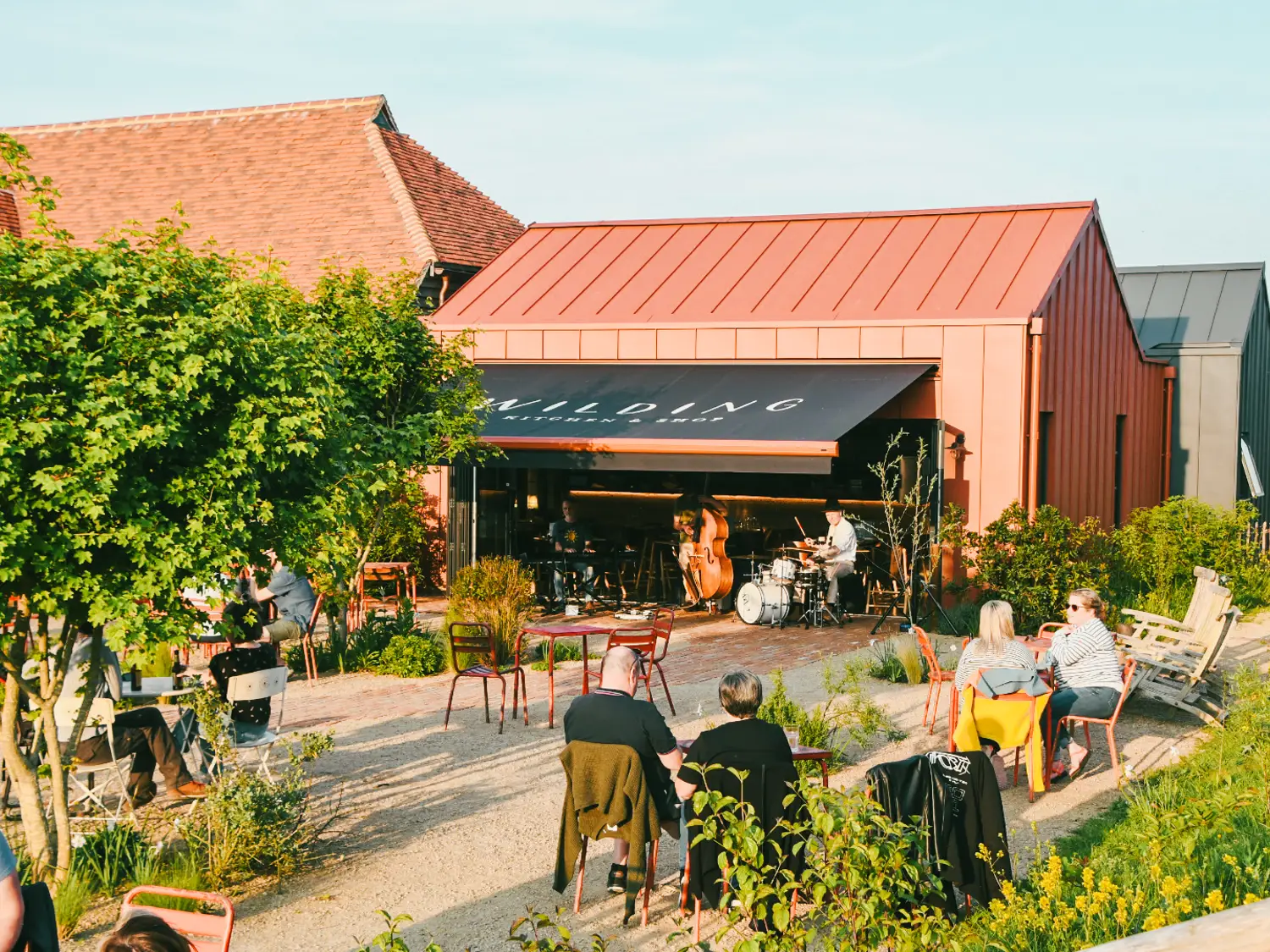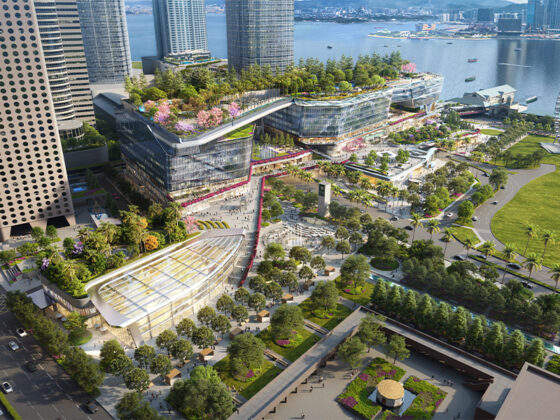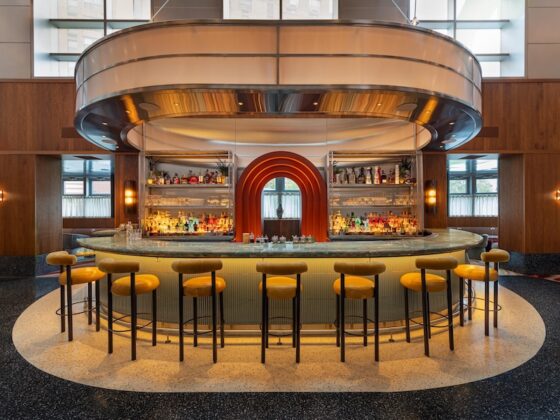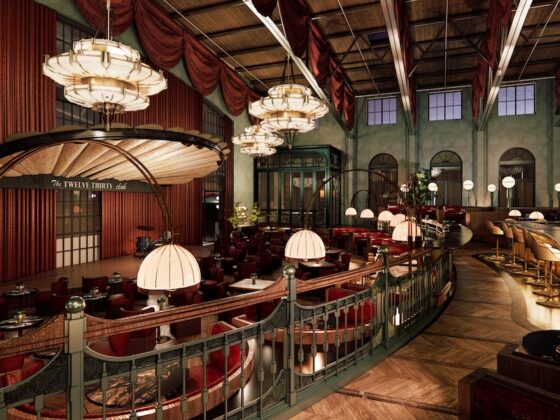
Carcass balance plays an important role in this ‘less, but better’ strategy. “Since we produce our own beef and venison, our in-house butchery team works closely with us to make full use of each animal,” he explains. “We design popular menu items around non-primal cuts, helping us to reduce waste and honour the animal in its entirety.”
Knepp is adept at communicating this ethos to their customers and their team, using a multi-media approach that includes guided tours; website and social media updates; menu descriptions that list producers and specific varieties; staff training, including tours and estate briefings; and putting educational booklets on every table.
The benefits and challenges of responsible operations
Ned tells us that championing more plants and better meat has benefited the Knepp business in a number of ways. The first of these is its economic impact. “Our market garden helps us connect customers with where their food comes from. This transparency adds value; people are more appreciative and willing to pay a premium,” he says. “That said, our produce is significantly more expensive, so our margins are tighter. In the short term, our approach may limit profitability, but we believe it will pay off long term as demand for responsibly sourced food continues to grow.” Their ethos also helps to attract and retain passionate staff who care about sustainability. “This shared mission is now core to our team culture and is invaluable to the business,” says Ned.
Finally, by focusing on measurable data, they can tell that they’re having a positive impact on the environment. “Knepp is a science-led estate,” he explains. “We conduct biodiversity and carbon studies across the site, including the restaurant and market garden. These show we’re making a measurable positive difference — and it all starts with producing food in harmony with nature.”
Of course, maintaining such a strong focus on doing business in responsible ways also comes with its own challenges. “Rising food prices and the 20% VAT on hospitality are major burdens, and government support is needed to ease this strain,” says Ned. He also calls for greater accountability across the sector. “Some competitors make sustainability claims without backing them up. We need stronger regulations — organisations like The SRA are a step in the right direction, but participation should be mandatory for those claiming sustainability credentials.” Finally, he points to a need for transparency in supply chains. “Especially in areas like fishing, we need more independent, detailed research to make informed sourcing decisions. That level of clarity just isn’t available yet.”
Food Made Good at Knepp Wilding Kitchen
Knepp Wilding Kitchen completed their first Food Made Good Standard in 2025, earning three stars for their evident and tangible approach to sustainability. “We see a real need for transparency and accountability in the food industry: the Food Made Good Standard offers exactly that,” says Ned. “It also acts as a toolkit to help embed sustainability throughout our operations. We were surprised by how holistic and detailed the process was. It made us realise the importance of documenting and sharing our ethos internally, and highlighted areas for growth — especially around staff culture. It’s already started making a positive impact.”







